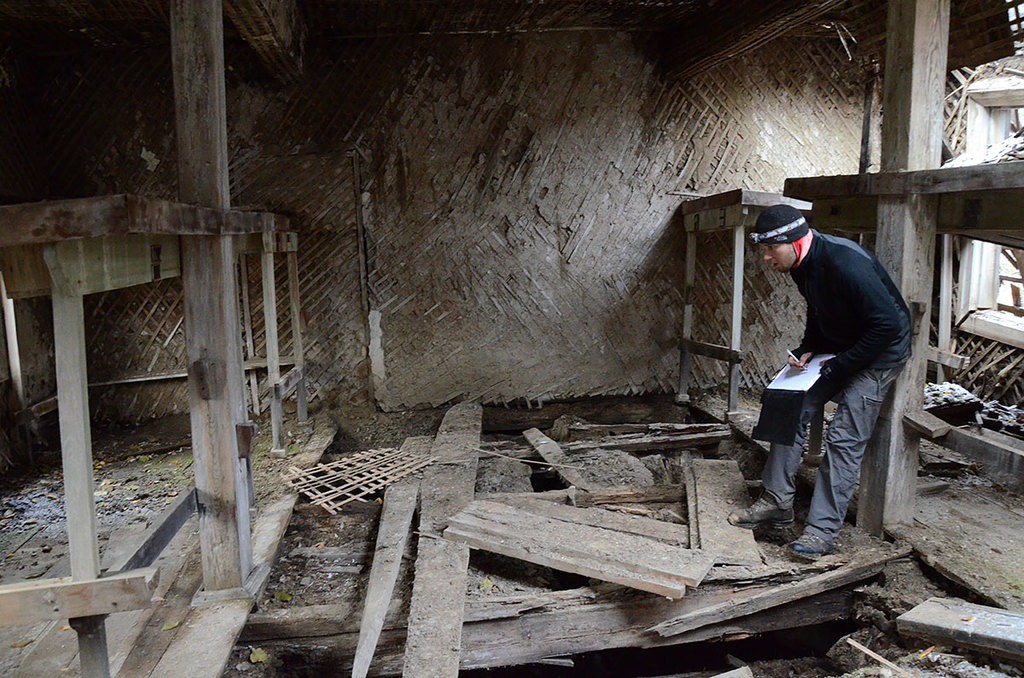Relatively comfortable prisoners’ barracks
This building is intended for prisoners, though it has more comfortable conditions than prevailed at most large barracks. It is less than half the size of normal barracks, with two inhabited rooms. Each had a capacity of around 20 people.
In the camps prisoners carried out different jobs, each with its own social status. Cooks and doctors belonged to a privileged class; they did not have to take part in communal work and during the day remained at the camp in the warmth of their work spaces. Their status was also reflected in how they lived and their superior accommodation. This barracks at the Barabanikha camp very likely housed just such camp hospital and mess hall staff, as it is in close proximity to both buildings.
“Lunch was served at the doctors’ barracks, where I got to know the doctors. They were all prisoners,” writes the American-Polish priest Walter Ciszek in his memoir about his time at camps in Norilsk (approx. 300km from the Dead Road). “There were only 14 people at the doctors’ barracks, including a Ukrainian dentist who certainly had plenty of work because all of the prisoners who had spent some time in the camps had extremely bad teeth, sometimes completely rotten.”
In this relatively comfortable barracks it was warmer in winter thanks to its small size; there were even two stoves in one room. This relative comfort is underlined by the fact that this barracks lay on the edge of the camp at an elevation, thanks to which there was a good view of the entire camp. The well in front of the barracks is also noteworthy, as is the combination of two types of bunk beds with which both rooms are fitted:


